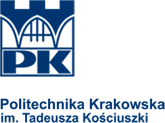Informujemy, że 1 września 2015 r. Narodowe Centrum Badań i Rozwoju (NCBR) wraz z Niemieckim Federalnym Ministerstwem Edukacji i Badań Naukowych (BMBF) planują otwarcie konkursu na wspólne projekty badawcze w następujących obszarach:
• Energy efficiency and climate protection, eg:
- Innovative products and services in the field of climate protection or to protect against climatic effects
- Technologies to reduce greenhouse gas emissions from industrial processes, particularly key innovations with a broad application potential
- Cultivation methods to reduce greenhouse gas emissions in rural areas
- Systems-related technologies, processes and services to enhance energy efficiency in important industrial sectors.
• Resource efficiency, eg:
- Increasing resource efficiency, particularly in resource-intensive production systems (eg processing of metal and mineral raw materials, production of primary chemical products)
- Improving the productivity of raw materials by optimizing value-added chains
- Innovative recycling and processing procedures
• Sustainable water management, eg:
- Innovative drinking water production methods
- Strategies and technologies for saving water (including recycling technologies); efficient irrigation technologies
- Energy-efficient waste water treatment methods and energy recovery from waste water
- New approaches and technologies for linking material flows (eg water/energy/waste) and possible recovery of (nutrient) substances
• Socio-ecological research, eg:
- Evaluation of the sustainability of products and services
- More sustainable products through innovations on the consumer side and on the production side
Wnioski mogą być składane przez podmioty publiczne i / lub prywatne, które kwalifikują się do udziału w konkursie, zgodnie z zasadami instytucji finansujących. Konkurs skierowany jest przede wszystkim do małych i średnich przedsiębiorstw (MŚP), zgodnie z definicją Unii Europejskiej (http://ec.europa.eu/enterprise/policies/sme/facts-figures-analysis/sme-definition/index_en.htm).Uniwersytety, instytucje badawcze i duże przedsiębiorstwa (większe niż MŚP) mogą również składać wnioski, pod warunkiem że są one częścią konsorcjów naukowych w skład których wchodzą MŚP.
W skład konsorcjów międzynarodowych musi wchodzić co najmniej po jednym MŚP z każdego kraju.

